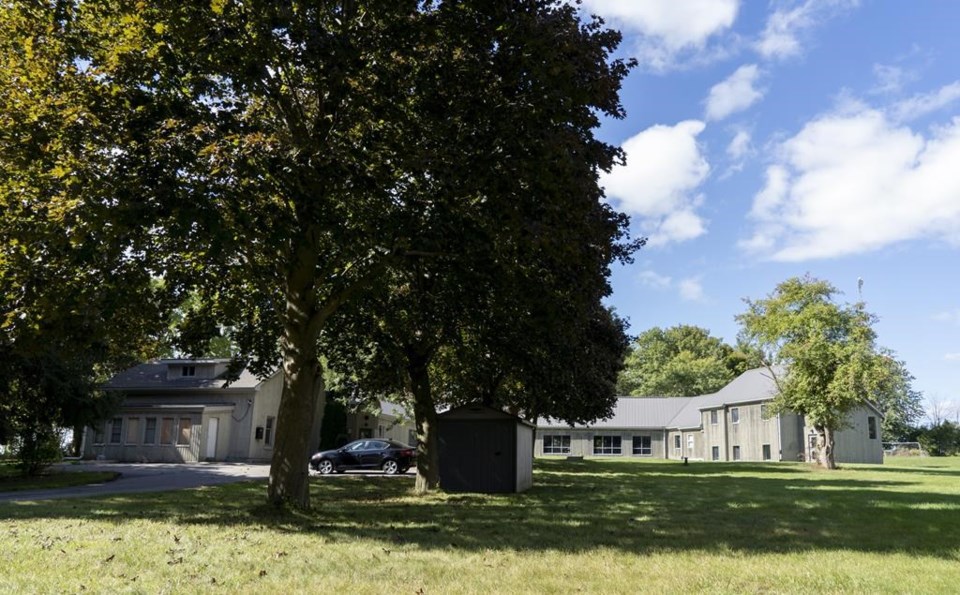Ontario should establish a right for First Nations children receiving child-protection services to return to their home communities, a jury recommended Friday at a coroner's inquest into the death of an Indigenous teen who went missing from a Hamilton group home.
The proposal was among 75 recommendations delivered by jurors who analyzed the circumstances around Devon Freeman's death and considered ways to prevent similar tragedies. The officer presiding over the inquest said the "right to return" proposal should be developed in collaboration with institutions at the inquest and adopted by the province as "Devon's Principle."
The inquest spent nearly four weeks examining Freeman's life and death – he was 16 when he was reported missing from the Lynwood Charlton Centre group home in the Flamborough area of Hamilton in the fall of 2017.
Freeman was found dead in April 2018 and an autopsy determined he died by hanging. The inquest heard Freeman had died a number of months before he was found.
Jurors at the inquest heard extensive evidence regarding systemic issues that played a role in the teen's life, including public policy and legal issues related to Indigenous children and youth in the child-welfare system. They also heard evidence of the teen's difficult past.
On Friday, the jury thanked the people of the Chippewas of Georgina Island First Nation where Freeman was from – and where the first day of the inquest was held – for welcoming them into their home.
"We feel very blessed ... to learn a glimpse of the Indigenous Peoples' histories that will remain with us and help us understand the true meaning of truth and reconciliation," a juror said on behalf of the jury.
The jury also acknowledged the "courage and strength" of Freeman's grandmother, Pamela Freeman, throughout the process. "We want you to know how deeply saddened we are for your loss of such a brave, smart, handsome grandson, Devon," the juror said while nearly choking up.
The five-member jury made dozens of recommendations directed at a number of players, including provincial ministries, Hamilton police, the Children's Aid Society of Hamilton and the Lynwood Charlton Centre.
Many recommendations involved increased communication between agencies involved in youth care – from police to children's aid societies – as well as with First Nations communities when dealing with Indigenous youth in care. Breakdowns in communications between agencies involved in Devon Freeman's care was a major theme at the inquest.
Jurors heard Freeman attempted suicide earlier in 2017 and had a history of suicidal thoughts and self-harm while in a residential program in 2015 and 2016, culminating in another reported suicide attempt. They also heard police weren't told of Freeman's suicidal ideation, or his suicide attempt when he was reported missing in the fall of 2017. No safety concerns were listed on the missing person report, the inquest has heard.
The jury recommended the creation of a case study training module for children's aid societies and residential service providers regarding lessons arising from Freeman's life and death. The jury said that effort should be led by the Chippewas of Georgina Island First Nation.
Other recommendations suggested the provincial and federal governments provide "direct, sustainable, equitable and adequate funding" for service providers supporting off-reserve First Nations children, youth and families. Recommendations also called for funding for culturally-relevant services.
Those proposals had been emphasized by multiple parties as important to preventing deaths similar to Freeman's, as the teen's lack of connection to his community and longing for cultural connection came up repeatedly at the inquest.
Patrick Bissett, press secretary to Merrilee Fullerton, minister of children, community and social services, said the ministry supports the inquest recommendations and will review them before commenting on specifics.
"Our thoughts continue to be with the family, friends and community impacted by this tragedy and we thank the jury and all participants for taking part in this difficult inquest," he said in a statement.
During closing arguments this week, however, a lawyer for the ministry had said it wasn't opposed to the "spirit" of numerous proposed recommendations aimed at the government but couldn't endorse them.
Lawyer Mimi Singh said that was because they involved spending or legislative changes that require approval from cabinet and legislature and could use further study. On the "right to return" recommendation, Singh posed questions about how a person's community is determined and what to do in cases where a child's community is outside of Ontario.
The inquest ended Friday with those at the proceeding in Hamilton rearranging chairs and tables in the room to create a traditional healing circle. Attendees then joined hands and danced around the circle to traditional songs.
This report by The Canadian Press was first published Oct. 21, 2022.
———
This story was produced with the financial assistance of the Meta and Canadian Press News Fellowship.
Tyler Griffin, The Canadian Press




